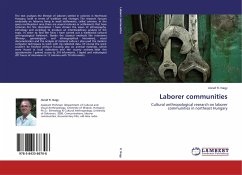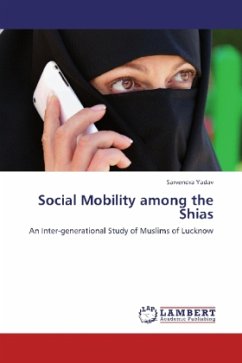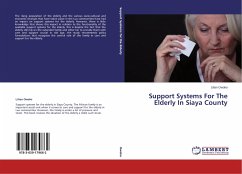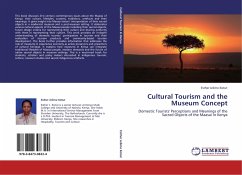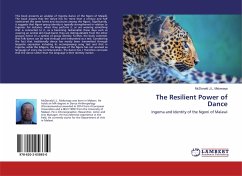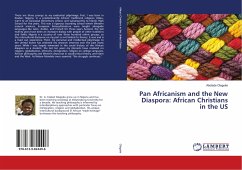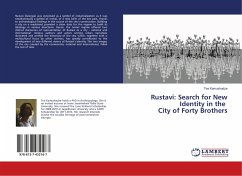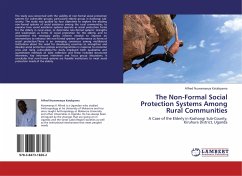
The Non-Formal Social Protection Systems Among Rural Communities
A Case of the Elderly in Kashongi Sub-County, Kiruhura District, Uganda
Versandkostenfrei!
Versandfertig in 6-10 Tagen
32,99 €
inkl. MwSt.

PAYBACK Punkte
16 °P sammeln!
The study was concerned with the viability of non-formal social protection systems for vulnerable groups; particularly elderly group in Kashongi sub-county. The study was guided by four objectives to explore the existing non-formal systems of social assistance among the rural communities, to examine how social assistance systems operate as social protection forms for the elderly in rural areas, to determine non-formal systems strengths and weaknesses as forms of social protection for the elderly, and to recommend the necessary policy reforms needed to improve on interventions to enhance the no...
The study was concerned with the viability of non-formal social protection systems for vulnerable groups; particularly elderly group in Kashongi sub-county. The study was guided by four objectives to explore the existing non-formal systems of social assistance among the rural communities, to examine how social assistance systems operate as social protection forms for the elderly in rural areas, to determine non-formal systems strengths and weaknesses as forms of social protection for the elderly, and to recommend the necessary policy reforms needed to improve on interventions to enhance the non-formal systems performance as forms of social protection.There is an emerging consensus among multilateral institutions about the need for developing countries to strengthen and develop social protection policies and programmes in response to economic crisis and rising vulnerability.The study employed both qualitative and quantitative methods of data collection and these included structured interviews, key informant interviews and focus group discussions. It concludes that non-formal systems are feasible institutions to meet social protection needs of the elderly.



